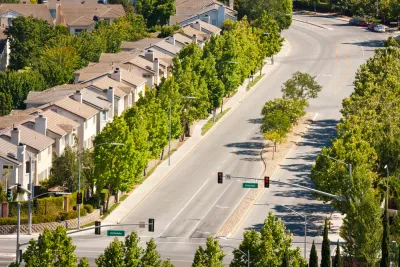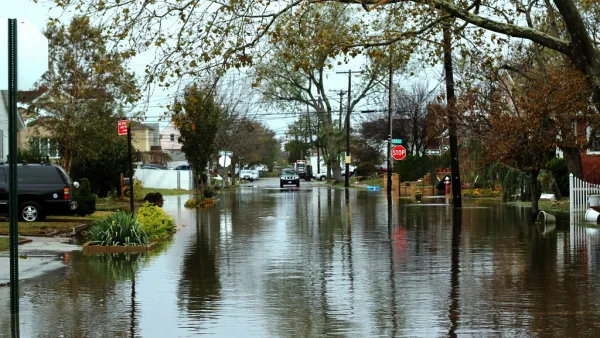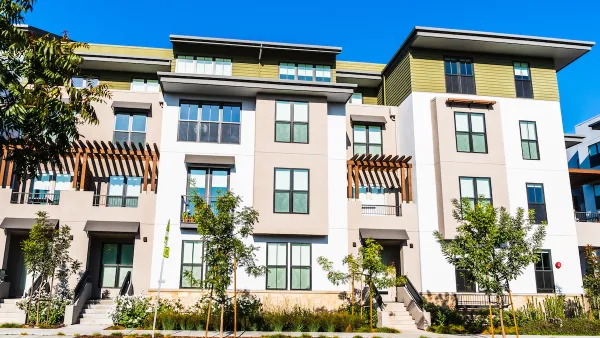One researcher argues that the division between transportation and land use policymaking at the federal level has harmed communities of color and encouraged unchecked sprawl.

Despite how deeply intertwined the issues of land use and transportation are, writes Yonah Freemark in Urban Wire, the two remain, administratively, "divided at the federal level." Freemark argues that "better planning and collaboration across the federal government could improve how communities are built and ensure their residents have access to more equitable outcomes."
Freemark's research "investigates in detail the major public debate about how to manage federal policy in transportation and land-use planning that occurred in the 1960s," when "there was neither a HUD nor DOT." At that time, "[h]ousing and land-use planning policy were run out of the Housing and Home Finance Agency (HHFA), and transportation policy was mostly run out of the US Department of Commerce."
After the creation of the Department of Housing and Urban Development (HUD) in 1965, the agency was tasked with managing "housing, land use, and transit planning" as well as "policy determination over highways in urban areas." This approach, argues Freemark, was undermined by the creation of the Department of Transportation (DOT) the following year, which "encouraged some congressmembers to think of transportation as independent, not integrated into the urban system." As a consequence of this and some congressmembers' disapproval of HUD's emphasis on the needs of Black residents, "in 1968, Congress moved all transportation planning to DOT, where it has remained since, isolated from housing and land-use planning."
Since the 1970s, Freemark writes, the "failure of federal administrators to plan for transportation and land use in parallel" has led to unchecked sprawl and a loss of access to public services for communities of color. Pointing to successful examples from other countries, he argues that "coordinating federal programs could improve US communities’ ability to plan for a less automobile dependent, more equitable future."

Analysis: Cybertruck Fatality Rate Far Exceeds That of Ford Pinto
The Tesla Cybertruck was recalled seven times last year.

National Parks Layoffs Will Cause Communities to Lose Billions
Thousands of essential park workers were laid off this week, just before the busy spring break season.

Retro-silient?: America’s First “Eco-burb,” The Woodlands Turns 50
A master-planned community north of Houston offers lessons on green infrastructure and resilient design, but falls short of its founder’s lofty affordability and walkability goals.

Test News Post 1
This is a summary

Analysis: Cybertruck Fatality Rate Far Exceeds That of Ford Pinto
The Tesla Cybertruck was recalled seven times last year.

Test News Headline 46
Test for the image on the front page.
Urban Design for Planners 1: Software Tools
This six-course series explores essential urban design concepts using open source software and equips planners with the tools they need to participate fully in the urban design process.
Planning for Universal Design
Learn the tools for implementing Universal Design in planning regulations.
EMC Planning Group, Inc.
Planetizen
Planetizen
Mpact (formerly Rail~Volution)
Great Falls Development Authority, Inc.
HUDs Office of Policy Development and Research
NYU Wagner Graduate School of Public Service




























